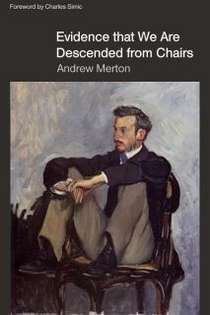What’s In a Name?
 Last week, the Hunter-Bellevue School of Nursing’s students and faculty, as well as guests from clinical agencies, heard an outstanding presentation on the Institute of Medicine’s report on The Future of Nursing and the relevance of the Affordable Care Act. Mary Ann Christopher, MSN, FAAN, the new president and CEO of the Visiting Nurse Service of New York, was the featured speaker. The students were clearly engaged in her presentation and had the opportunity to interact during the discussion period with Ms.Christopher. Repeatedly, the students who came to the microphone to pose questions and react to her presentation identified themselves by first name. As moderator, I asked them to give their full name on several occasions. But it was disturbing to see that they had to be prompted to do so.
Last week, the Hunter-Bellevue School of Nursing’s students and faculty, as well as guests from clinical agencies, heard an outstanding presentation on the Institute of Medicine’s report on The Future of Nursing and the relevance of the Affordable Care Act. Mary Ann Christopher, MSN, FAAN, the new president and CEO of the Visiting Nurse Service of New York, was the featured speaker. The students were clearly engaged in her presentation and had the opportunity to interact during the discussion period with Ms.Christopher. Repeatedly, the students who came to the microphone to pose questions and react to her presentation identified themselves by first name. As moderator, I asked them to give their full name on several occasions. But it was disturbing to see that they had to be prompted to do so.
This is a common occurrence when I’m with staff nurses, including those who are graduate students. I have been puzzled about why, then recently received an email from a colleague who earned a PhD last year:
“What do you think about nursing badges with the nurses’ first name only on the top line, yet physicians have their first and last name on the top line. I was told if I had my first and last name on the top line of my badge patients might confuse me with a physician.”
This is such rubbish and leads to physicians being called “Dr. Lastname” and nurses being referred to by their first names. Nurses can tell you that both nurses and MDs use first names with each other when the physicians are medical students, interns or residents; but once they become attending physicians, they expect to be called “Dr. Lastname” while still referring to the nurses by first name.
I know that some nurses are afraid that a patient might try to track them down at their homes if they include their last name, but why aren’t physicians? What about social workers or nutritionists or other providers? And why are nurses perpetuating this inequality?
What’s in a name? A lot.
Diana J. Mason, PhD, RN, FAAN, Rudin Professor of Nursing
Last week, the Hunter-Bellevue School of Nursing's






 This week
This week